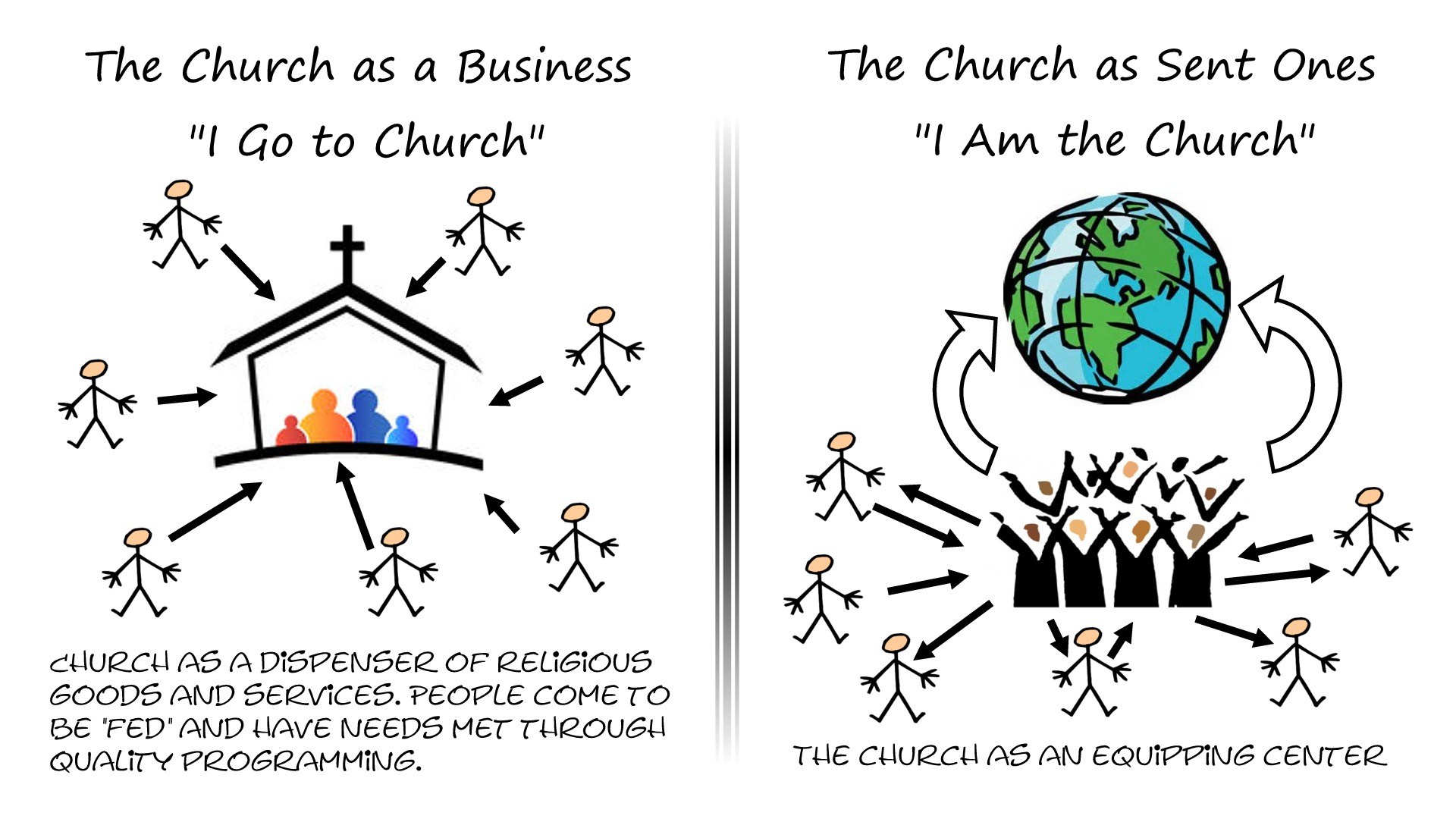On December 29, due to the lack of a working projector, Scott was unable to show this video on Missional Church. Below you may read what he talked about in the service…
BEING MISSIONAL: The Incarnational Approach
You’ve likely heard the term, “the missional church” in conferences and conversation. Simply put, it is a call to churches to be biblically faithful as Christ’s presence in their local community.
In Breaking the Missional Code by Ed Stetzer and David Putman, the authors make the following statement:
“It may sound uncharitable, but we don’t mean it to be so. But . . . many will say that these shifts, and a book like this, do not matter. They are convinced if you just “preach the gospel” and perhaps “love people” that your church will reach people. They are wrong, and their ideas hurt the mission of the church. Communities across North America are filled with churches led by loving gospel preachers—most of whom, if statistics are true, are not reaching people. You cannot grow a biblically faithful church without loving people and preaching the gospel. But loving people means understanding and communicating with them. Preaching the gospel means to proclaim a gospel about the Word becoming flesh—and proclaiming that the body of Christ needs to become incarnate in every cultural expression.”
So, practically speaking, what would it mean for the church to become “missional?” This list is from Dan Kimball’s book, They Like Jesus But Not the Church and explains what Stetzer and Putman are suggesting:
- Being missional means that the church sees itself as being missionaries, rather than having a missions department, and that we see ourselves as missionaries right where we live.
- Being missional means that we see ourselves as representatives of Jesus “sent” into our communities, and that the church aligns everything it does with the missio dei (mission of God).
- Being missional means we see the church not as a place we go only on Sunday, but as something we are throughout the week.
- Being missional means we understand we don’t “bring Jesus” to people but that we realize Jesus is active in our culture and we join him in what he is doing.
- Being missional means we are very much in the world and engaged in culture but are not conforming to the world.
- Being missional means we serve our communities, and that we build relationships with the people in them, rather than seeing them as evangelistic targets.
- Being missional means being all the more dependent on Jesus and the Spirit through prayer, the Scriptures, and each other in community.
Authentic followers of Jesus would seem to be missional in their mindset as described here. It’s more than being involved in missions activities; it’s a way of life!
The last time I preached here, I talked about Biblical Disciplemaking – the Pathway, and the steps that followers of Jesus must take to be effective and obedient disciples of Jesus.
I described the four key relationships in the life of a disciple:
- Life with God
- Life in Community
- Life on Life
- Life on Mission
So today, I want to walk down this path a little further, jumping to the end, Life on Mission, or the difference between Traditional Church and Missional Church.
Take a look at this image, it might put this into something we can remember…

We desire to make an impact on our world and community. People just might consider the claims of Christ or at least view Christianity with some mention of respect if they could just see more people actually living out what they profess to believe. They see us as churchgoers more than the biblical definition of a church.
A lot of people may be into spirituality, but they are certainly not into the church. How can we grow into authentic followers of Christ? How can we embrace what it means to be missional?